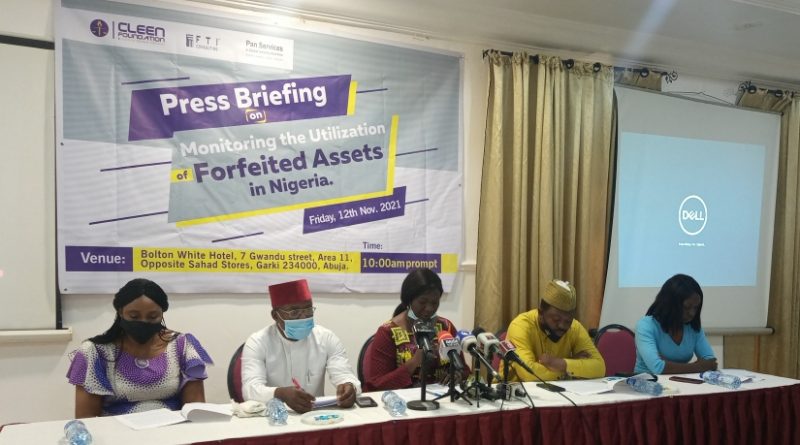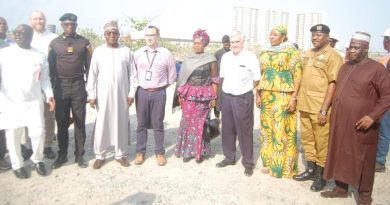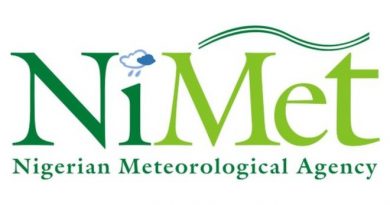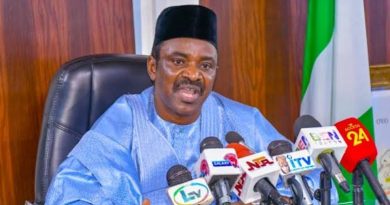MONITORING THE UTILIZATION OF FORFEITED ASSETS IN NIGERIA: CLEEN Foundation Briefs the Press on the implementation of Tripartite Agreement.
Oru Leonard
On monitoring the utilization of fortified assets in Nigeria, the CLEEN Foundation during a press briefing with Journalists on the implementation of Tripartite Agreement today, had commended, contractors for upholding best practices- See full text.
THE IMPLEMENTATION OF THE TRIPATRITE AGREEMENT BETWEEN THE FEDERAL GOVERNMENT OF NIGERIA, UNITED STATES GOVERNMENT & THE BALWICK OF JERSEY ON THE UTILISATION OF FORFEITED ASSETS MONITORED BY THE CLEEN FOUNDATION: COMMENDS “ CONTRACTORS” FOR UPHOLDING BEST PRACTICES
Introduction
The CLEEN Foundation on the 10th of February 2021 was appointed by the Federal Government of Nigeria, the USA, and the Bailiwick of Jersey. This appointment is based on the trilateral agreement signed among Nigeria, USA and the Bailiwick of Jersey as the civil society organisation to provide effective monitoring of the implementation of the tripartite agreement on the sharing, transfer, disposition, repatriation, and management of Certain Forfeited Assets. The forfeited funds worth $311.8million (Three hundred and eleven million dollars) will be for the benefit of the Nigerian people for infrastructural development namely: Abuja-Kano Road, Second River Niger Bridge and the Lagos-Ibadan Expressway.
CLEEN Foundation and her consortium partners (FTI Consulting headquartered in Washington DC, USA who are renowned specialists in asset tracing and recovery, risk assessments, forensic accounting investigations, and Pan Services, an international full service infrastructure development and management advisory service firm based in the United States of America and Nigeria) are required to monitor the utilisation of the forfeited assets. The scope of work are inclusive and not limited to compliance with regards to anti-corruption, anti-human trafficking, procurement practices, forensic auditing, engineering and infrastructure.
2.0.Methodology:
CLEEN Foundation and her Consortium partners upon an agreed program of works with the Nigeria Sovereign Investment Authority and Responsible Contractors spanning from June 2021 – March 2022 have embarked on series of on-the-spot checks and unscheduled visits to these locations. Twenty-nine (29) Nigerian citizens domiciled in localities close to the project locations where work is being performed have being trained on the methodology to undertake the monitoring functions including the CLEEN project team. These monitors have been deployed to undertake unscheduled visits to the construction locations. Currently, about 450 unscheduled visits have been undertaken. Furthermore, the CLEEN Consortium has embarked on two quarterly site visits to the three project locations since the commencement of this project in June 2021. The first site visit was between the 14th – 25th of June 2021, while the second was undertaken between the 16th – 20th of August and 22nd – 25th of September 2021 respectively.
3.0.Project Locations/Responsible EPC Contractors
The project locations being monitored cut across eight (8) states namely Oyo, Ogun, Lagos, Delta, Anambra, FCT (Abuja), Kaduna and Kano. The Nigeria Sovereign Investment Authority has the responsibility to supervise the utilization of these funds by Julius Berger Nigeria PLC and Reynolds Construction Company who were contracted by the Federal Ministry of Works and Housing. The forfeited assets amounting to N126 billion (One Hundred and twenty-six billion Naira) is being spent on the three projects that cut across three zones of the country equally as follows:
N42 billion naira for the Lagos-Ibadan expressway N42 billion for the second Niger bridge; and N42 billion for the Abuja-Kano Road.
The rehabilitation of the Lagos to Ibadan Expressway was awarded to two EPC Contractors, Reynolds Construction Company Ltd. (RCC), and Julius Berger Ltd. (JBL). While Reynolds Construction Company is responsible for Section two of the Lagos – Ibadan Expressway (Sagamu-Ibadan), Julius Berger Nigeria Limited is responsible for Section one of the Lagos-Ibadan Expressway (Lagos-Sagamu axis), Second River Niger Bridge and the Abuja-Kano Road.
On both sections of the Lagos-Ibadan Expressway, the forfeited assets are mainly utilized on Km 12, 13, 22, 24, 37, 43, 48, 49, 50-54, 101-104, and 108-112. Some popular landmarks identified around the construction sites include Deeper life/MFM, NASFAT Camp, Ajura , Idi-Ayunre, Iperu, Ilishan-Remo, Ogere, Redemption camp, Ojoo, and Oleyo.
For the Second River Niger Bridge, the East Bank of the Niger (Onitsha axis), West Bank of the Niger River (Asaba axis), toll stations, secondary bridges (Atani & Amakom) and the Owerri interchange at Obosi are areas the forfeited assets are currently being utilised on this site location.
On the Abuja-Kano road, the forfeited assets are currently being utilised at Km 12+650 – Km 18 by Nepa U-turn close to Kwamba/Tafa, work zones 7 and 8 in Km 44-53 close to Jere town, Km 196-199 located at Birnin-Yero, in Turunku in Igabi LG area of Kaduna State, Km 227-235 located between Tariyan-Sarkin and Dutsan Abba at Zaria LG of Kaduna State, and Km 351 – 378 located between Ciromawa – Karfi communities of Kano State.
4.0.Preliminary Observations
The CLEEN Consortium during her monitoring visitations to the project site locations since June 2021 in relation to the forfeited assets observed that work is progressing at each project location. Workers were on site, construction activities are ongoing, and each of the project offices are staffed and operational. The Monitoring Team was met timely and without incident by the EPC Contractors who were suitably prepared and offered appropriate comprehensive updates on the nature and progress of works at each of the site locations. The quality of work observed appears to be consistent with acceptable standards.
There were simultaneous ongoing construction activities on both sides of the dual carriageway of the Abuja-Kano Road, sections of the Second River Niger Bridge, and the Lagos-Ibadan Expressway. Examples of infrastructures built when we conducted our monitoring activities include but are not limited to the following: Median Barrier, Road Drainage, Main Carriageway, and Remedial Work (road markings, grass planting).
The means and methods used by the EPC Contractors, especially at the Second Niger Bridge, appear to be innovative. For the Second river Niger Bridge, Julius Berger demonstrated good innovation using geotextile, given that the secondary road subgrades were weak. This construction method/value engineering has several benefits that include accelerating the construction time, increasing the road lifespan and durability, and reducing the need for frequent maintenance. In addition, the cold recycling method which promotes effective cost management is another valued engineering method by Julius Berger Nigeria at the Abuja-Kano Road.
Conclusion
While leveraging on the increased level of cooperation between the CLEEN Consortium , the EPC Contractors, the EPC Contractors, Nigeria Sovereign Investment Authority and the Federal Ministry of Justice, we will be embarking on our third quarterly visitations to the project site locations between the 15th -27th of November 2021. CLEEN will continue to update Nigerians through its media handles and on the website created especially for the project.
Mrs. Ruth Olofin
Acting Executive Director
CLEEN Foundation




